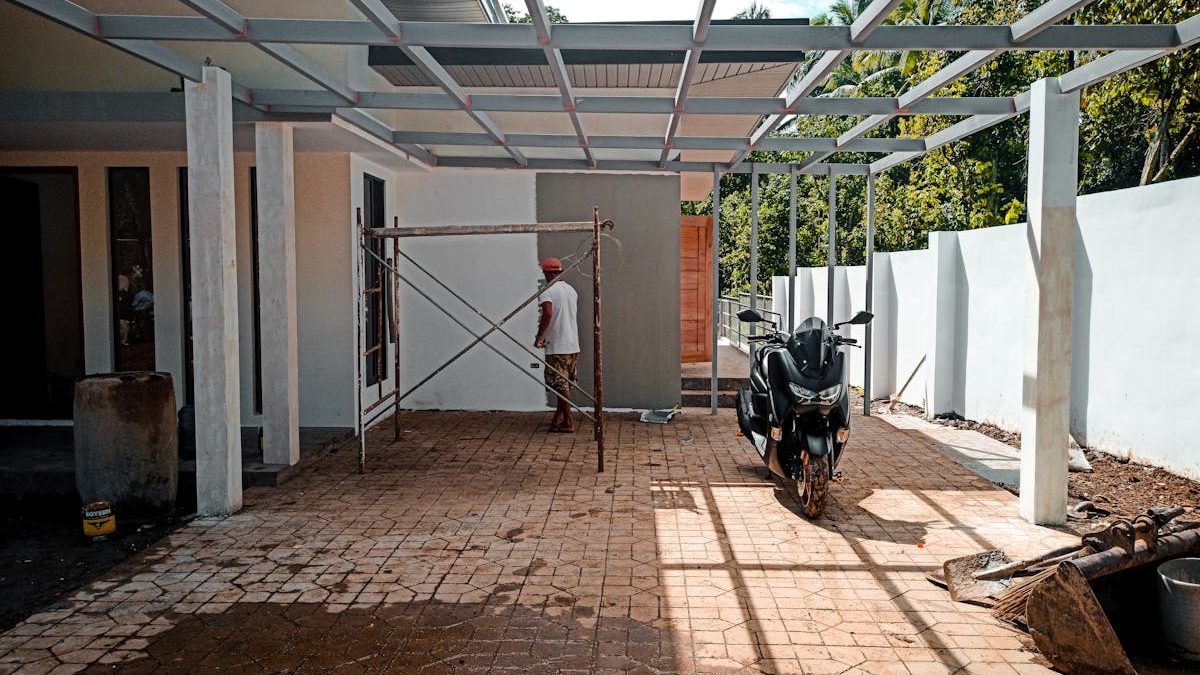
12 Ways to Make Your HVAC System Run More Effectively
One of the most important systems in your home is the HVAC system. It is responsible for keeping your home comfortable year-round by regulating temperature and air quality. However, many homeowners overlook the importance of proper HVAC maintenance and efficiency. By following these tips, you can ensure that your HVAC system runs more effectively, saving you money on energy bills and preventing costly repairs.
1. Regular Maintenance

Local AC repairs and maintenance are crucial for the optimal performance of your HVAC system. This includes changing filters regularly to ensure proper airflow and prevent dust and debris from clogging the system. Cleaning coils is also essential to improve efficiency and prevent the buildup of dirt and grime that can hinder performance. Checking refrigerant levels is important to ensure that your system is running at peak efficiency and prevent costly repairs down the line.
By hiring a professional HVAC contractor to perform regular maintenance tasks, you can extend the lifespan of your system and improve its overall performance. Your local AC services have the expertise and tools needed to properly clean and inspect your HVAC system, ensuring that it runs smoothly and efficiently.
Don’t forget to check hose clips and connections for any signs of wear or damage. Replace any damaged clips to prevent leaks and improve the efficiency of your HVAC system. A small investment in regular maintenance can save you money in the long run by preventing costly breakdowns and extending the lifespan of your system.
2. Programmable Thermostat

Investing in a programmable thermostat is a great way to make your HVAC system more efficient. By setting timers to adjust the temperature based on your schedule, you can save energy and money by not heating or cooling your home when it’s not necessary. Adjusting temperatures according to your comfort level can also help reduce energy consumption and lower your utility bills.
Utilizing energy-saving features such as vacation mode or smart scheduling can further improve the efficiency of your HVAC system. These features allow you to easily control the temperature settings in your home, even when you’re away, saving you money on energy costs. By integrating a programmable thermostat into your HVAC system, you can enjoy a more comfortable home while reducing your carbon footprint.
Contact a local HVAC contractor for assistance with installing and setting up your programmable thermostat. They can guide you on the best practices for optimizing your system’s performance and help you take full advantage of energy-saving features to maximize efficiency.
3. Proper Insulation

Ensuring that your home is properly insulated is essential for the efficient operation of your HVAC system. Sealing air leaks and adding insulation to your ductwork can prevent heat loss in the winter and keep cool air from escaping in the summer, reducing the workload on your HVAC system. Adding attic insulation is also crucial for maintaining a consistent temperature throughout your home. Contact your local roofing services if you suspect that your roof may be causing air to escape from your home.
Spray foam insulation services can help you seal gaps and cracks in your home, preventing air leakage and improving energy efficiency. By hiring a professional insulation contractor, you can ensure that your home is properly insulated and protected from the elements. This can help reduce the strain on your HVAC system and lower your energy bills.
If you’re unsure about the insulation needs of your home, contact a local HVAC contractor for a professional assessment. They can recommend the best insulation solutions for your specific needs and help you create a more energy-efficient home environment.
4. Air Flow Optimization

Maintaining proper airflow in your home is crucial for the efficient operation of your HVAC system. Clearing vents of dust and debris can improve air quality and prevent blockages that can restrict airflow. Balancing airflow throughout your home by adjusting vents and dampers can ensure even distribution of heated or cooled air.
Cleaning air ducts is an important maintenance task that can improve the efficiency of your HVAC system. Over time, dust and debris can accumulate in the ductwork, obstructing airflow and reducing system performance. By hiring a professional HVAC contractor to clean your air ducts, you can improve indoor air quality and promote better energy efficiency.
Regularly cleaning and maintaining your HVAC system’s components can help prevent breakdowns and extend the lifespan of your system. By paying attention to airflow optimization, you can ensure that your HVAC system operates at peak performance and provides optimal comfort throughout your home.
5. Upgrading Equipment
Investing in energy-efficient HVAC equipment can significantly improve the performance of your system and reduce energy consumption. By installing new, high-efficiency units, you can enjoy greater comfort while lowering your energy bills. Upgrading your thermostat to a smart or programmable model can also improve efficiency and allow for better control over your system.
Add a zoning system to your HVAC setup to further enhance efficiency and comfort in your home. Zoning systems allow you to regulate temperatures in different areas of your home independently, reducing energy waste and optimizing comfort levels. By working with experienced HVAC contractors, you can explore the best equipment upgrades for your home and enjoy improved performance.
Whether you’re looking to replace an outdated unit or upgrade your thermostat, consult with a local HVAC contractor to determine the best options for your needs. They can provide guidance on equipment selection and installation, ensuring that your new HVAC system operates at peak efficiency and maximizes comfort in your home.
6. Monitoring Humidity Levels
Keeping an eye on indoor humidity levels is important for maintaining a comfortable and healthy home environment. Using dehumidifiers can help reduce excess moisture in the air, preventing mold growth and improving air quality. Installing humidifiers can add moisture to the air in dry climates, preventing dry skin and respiratory issues.
Balancing humidity levels in your home is crucial for the efficient operation of your HVAC system. Excess moisture can make your home feel warmer in the summer and colder in the winter, causing your HVAC system to work harder to maintain a comfortable temperature. By monitoring and regulating humidity levels, you can reduce energy consumption and improve the overall performance of your system.
Contact a local HVAC contractor for assistance with installing and maintaining humidifiers and dehumidifiers in your home. They can recommend the best solutions for controlling humidity levels and help you achieve a healthier and more comfortable living environment.
7. Regulating Sunlight Exposure
Your home’s exposure to sunlight can have a significant impact on the efficiency of your HVAC system. Using window treatments such as plantation shutters, blinds, or curtains can help regulate sunlight and prevent heat gain in the summer. Planting trees or shrubs strategically around your home can also provide shade and reduce solar heat gain.
Installing awnings over windows or doors can further reduce heat gain in your home and help maintain comfortable indoor temperatures. By minimizing direct sunlight exposure, you can lessen the workload on your HVAC system and improve energy efficiency. Consider consulting with a local tree service or landscaping company for expert advice on planting trees and shrubs for optimal shade.
By taking steps to regulate sunlight exposure in your home, you can reduce the need for constant heating and cooling and lower your energy bills. Simple changes such as installing awnings or adjusting window treatments can make a big difference in the overall efficiency of your HVAC system.
8. Energy-Saving Practices
Implementing energy-saving practices in your home can help reduce energy consumption and improve the efficiency of your HVAC system. Adjusting thermostat settings according to the seasons and your comfort preferences can save energy and lower utility bills. Using ceiling fans in conjunction with your HVAC system can help distribute air more effectively and reduce temperature imbalances.
Closing blinds or curtains during the hottest parts of the day can help block sunlight and reduce heat gain in your home. This can lessen the workload on your HVAC system and improve energy efficiency. By incorporating these energy-saving practices into your daily routine, you can enjoy a more comfortable home while lowering your carbon footprint.
Contact a local HVAC contractor for additional tips on energy-saving practices and ways to optimize the performance of your HVAC system. They can recommend personalized solutions based on your home’s layout and your energy conservation goals, helping you achieve maximum efficiency and comfort.
9. Professional Maintenance
Scheduling regular maintenance with a certified HVAC contractor is essential for the longevity and efficiency of your system. They can conduct thorough inspections and tune-ups to ensure that your HVAC system is operating at peak performance. Seasonal maintenance tasks, such as cleaning coils and checking refrigerant levels, can prevent costly breakdowns and improve energy efficiency.
By hiring a reputable HVAC contractor for professional maintenance services, you can rest assured that your system is in good hands. They have the expertise and tools necessary to identify and address potential issues before they escalate, saving you money on repairs and extending the lifespan of your system. Make sure to schedule regular maintenance appointments to keep your HVAC system running smoothly year-round.
If you’re in need of professional maintenance or repair services, reach out to a local HVAC contractor or HVAC repair company for assistance. They can offer comprehensive maintenance plans and expert advice on optimizing the performance of your HVAC system, ensuring optimal comfort and energy efficiency in your home.
10. Smart Home Integration
Integrating your HVAC system with smart home technology can enhance efficiency and convenience in your home. Installing a smart thermostat can allow you to control your HVAC system remotely and adjust temperature settings on the go. Utilizing HVAC apps and home automation systems can help you monitor energy usage and optimize system performance.
By installing smart thermostats and integrating them with your HVAC system, you can enjoy greater flexibility and control over your home’s temperature settings. HVAC apps can provide real-time data on energy consumption and suggest ways to save on heating and cooling costs. By embracing smart home integration, you can enhance the efficiency and comfort of your living space.
Consult with a local HVAC contractor for assistance with smart home integration and selecting the best technology for your needs. They can recommend compatible devices and help you set up your smart home ecosystem for maximum efficiency and convenience. Embrace the future of home comfort with smart HVAC solutions tailored to your lifestyle.
11. Strategic Landscaping
One effective way to improve the efficiency of your HVAC system is through strategic landscaping. With the help of a local tree company, you can provide natural shade by planting trees around your property, which helps reduce the heat absorbed by your home, lowering the need for constant cooling by your HVAC system.
Additionally, shrubs can act as insulation for your home, helping to retain cool air in the summer and warm air in the winter. Creating windbreaks with trees or shrubs can also protect your home from cold drafts, reducing the workload on your HVAC system.
You can consult with a local tree service to determine the best placement for trees and shrubs around your property to maximize their efficiency in improving your HVAC system’s performance.
12. Utilize Plantation Shutters
Plantation shutters are a stylish and functional addition to your home that can help improve the efficiency of your HVAC system. These shutters are designed to block out sunlight and heat during the summer months, reducing the need for excessive cooling.
By installing plantation shutters on windows that receive direct sunlight, you can regulate the temperature inside your home more effectively, reducing the strain on your HVAC system. This will not only save you money on energy bills but also extend the lifespan of your HVAC unit.
Contact a local AC repair company for recommendations on the best way to maximize energy efficiency and comfort. Maximizing the efficiency of your HVAC system is essential for maintaining a comfortable and energy-efficient home. By following these tips, such as regular maintenance, proper insulation, and energy-saving practices, you can ensure that your HVAC system operates at peak performance. Investing in upgrades, monitoring humidity levels, and regulating sunlight exposure can further enhance the efficiency of your system.
Remember to schedule professional maintenance with a certified HVAC contractor to keep your system running smoothly and prevent costly repairs. By embracing smart home integration and incorporating energy-saving practices into your daily routine, you can enjoy a more comfortable home while reducing your carbon footprint. With the right care and attention, your HVAC system can run more effectively and efficiently for years to come.



